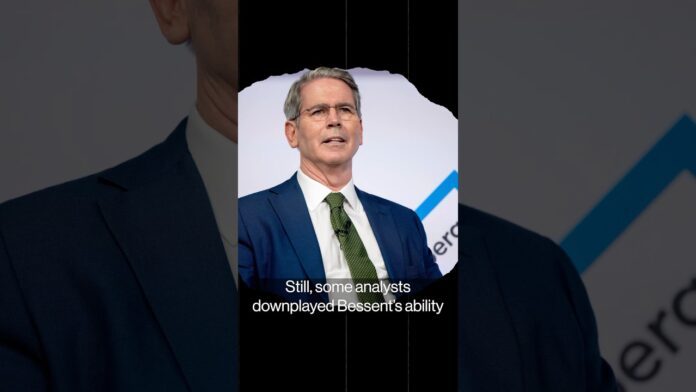Donald Trump appointing Scott Bessent as Treasury Secretary may ease China tariffs, fostering improved U.S.-China relations. Bessent’s financial expertise could navigate fiscal policies for mutual economic growth.
Shift in U.S.-China Relations
Donald Trump’s appointment of Scott Bessent as Treasury Secretary could signal softening tariffs on China. Bessent’s financial expertise suggests a potential shift toward improving relations with China despite existing tensions. The move indicates a possible alignment of U.S. trade policies with China’s goals, focusing on sustainable finance and economic inclusivity. This shift might improve collaboration between the two nations, even as the administration navigates domestic interests and global economic pressures.
Prospects for Economic Cooperation
Bessent’s extensive experience in financial policy could encourage dialogue on currency valuation and trade imbalances, fostering mutual respect. His tenure may lead to more transparent fiscal practices in China, promoting trust on the international stage. By transforming competition into strategic alliances, Bessent might pave the way for stable economic relations. This cooperative approach could open new avenues for businesses in both nations, contributing to economic growth and global stability.
The appointment of Bessent as Treasury Secretary marks a significant juncture in China’s financial strategy, poised to influence both domestic and international economic landscapes. Known for her acumen in global markets, Bessent’s leadership could well signal a strategic pivot towards more progressive financial policies. Her extensive experience in managing complex financial ecosystems positions her uniquely to navigate the intricate challenges posed by the current global economic environment.
Bessent is anticipated to bring a fresh perspective to China’s economic policies, emphasizing innovation and adaptability. Her proven track record in steering major financial institutions through turbulent times can be invaluable for China’s ongoing economic reforms. With global markets becoming increasingly interconnected, Bessent’s appointment is seen by many as a positive move to bridge international economic policies with China’s strategic interests. This could lead to a more nuanced approach to foreign exchange policies, potentially easing global tensions over trade imbalances.
Domestically, her leadership could usher in reforms that align closer with international standards, enhancing investor confidence and attracting foreign investment. Bessent’s commitment to transparency and regulatory best practices might encourage a more robust financial infrastructure, addressing long-standing issues such as market volatility and shadow banking. By fostering a more stable and transparent financial environment, she can help drive sustainable growth within China, crucial for maintaining its economic momentum amidst global uncertainties.
Moreover, Bessent’s appointment may bolster China’s influence in international financial circles. Her expertise could facilitate stronger partnerships and cooperative frameworks with other major economies, crucial for managing global challenges like climate change and digital currency integration. While her role is inherently complex, her strategic vision and leadership style might prove essential in shaping China’s economic future, enhancing its role as a leading financial powerhouse. Her success could redefine economic diplomacy, promoting equitable growth and stability both within China and across the globe.
Source : Bessent as Treasury Secretary: A Positive Move for China?



